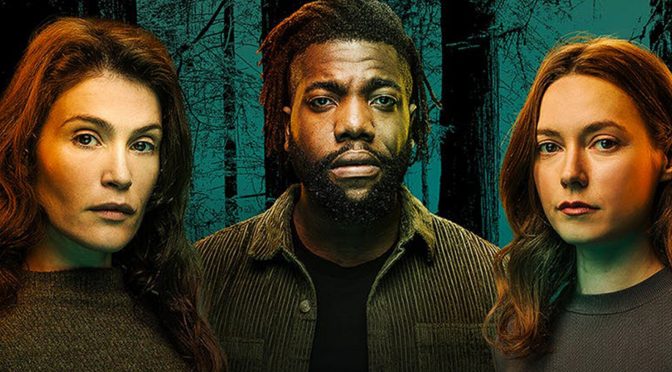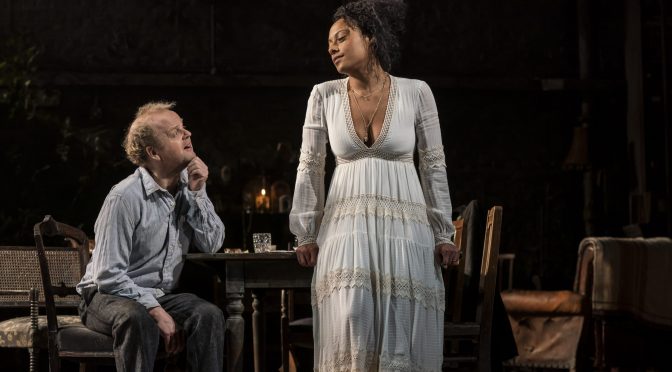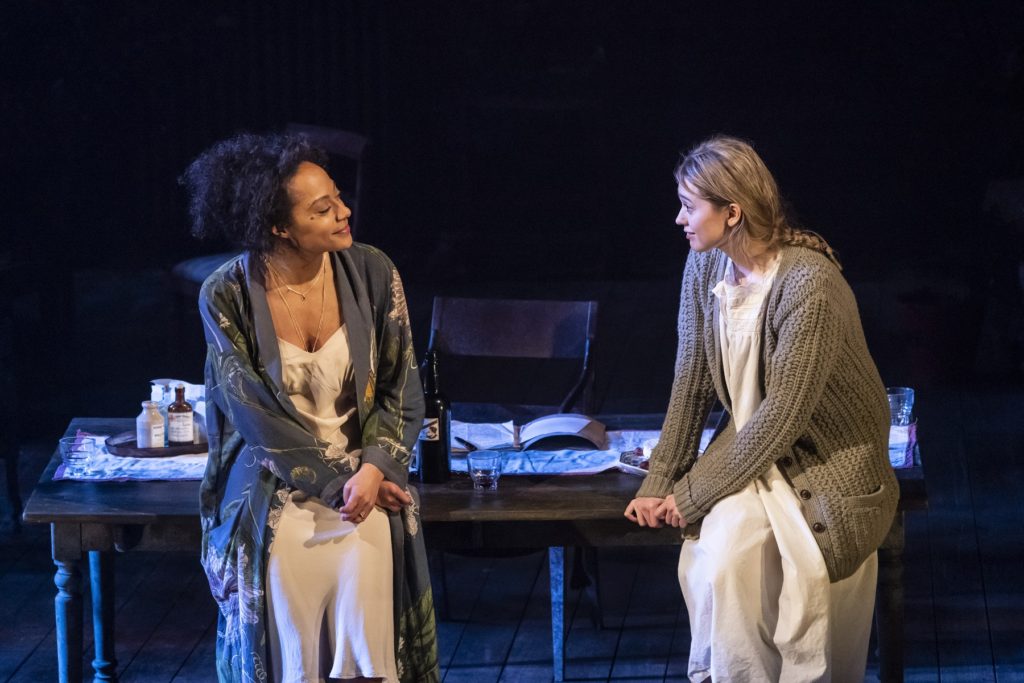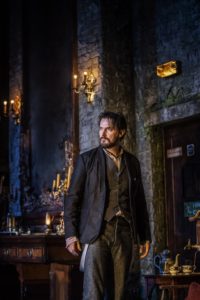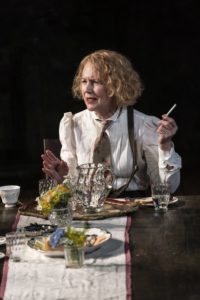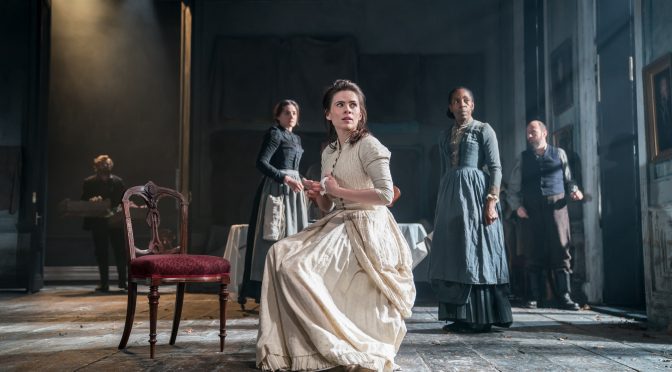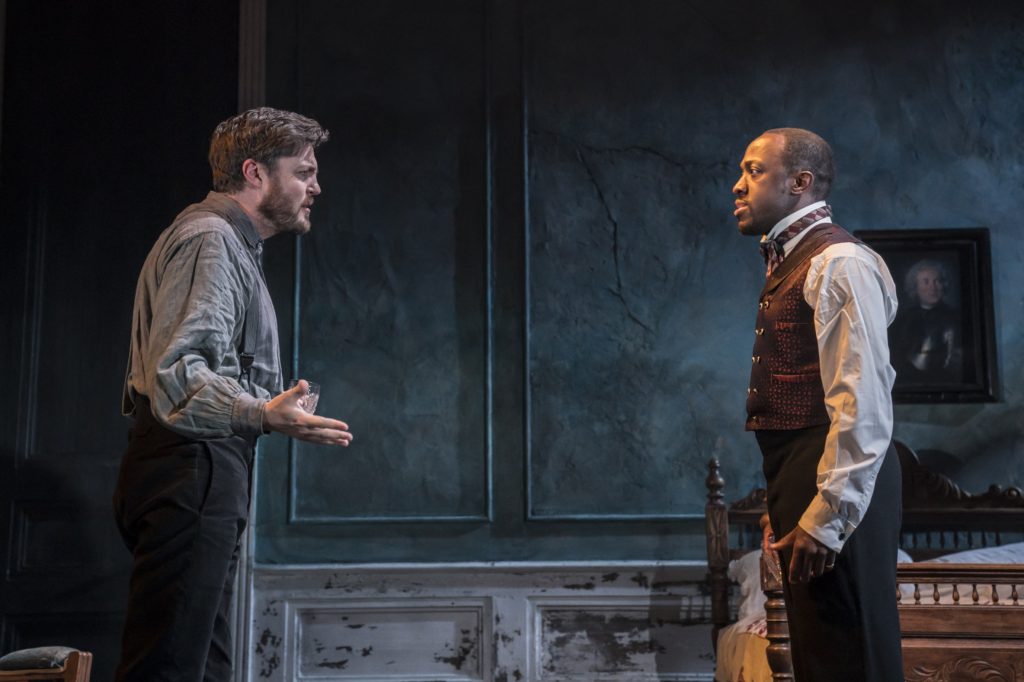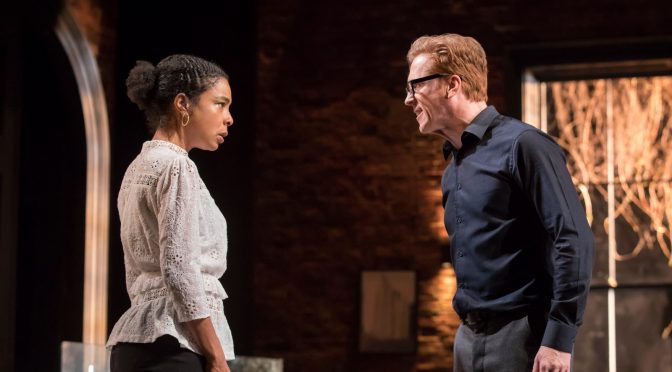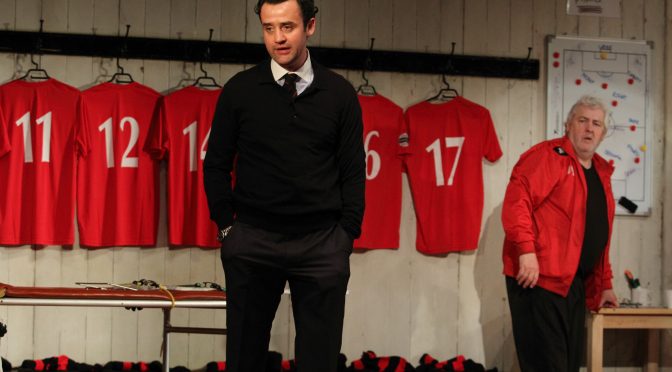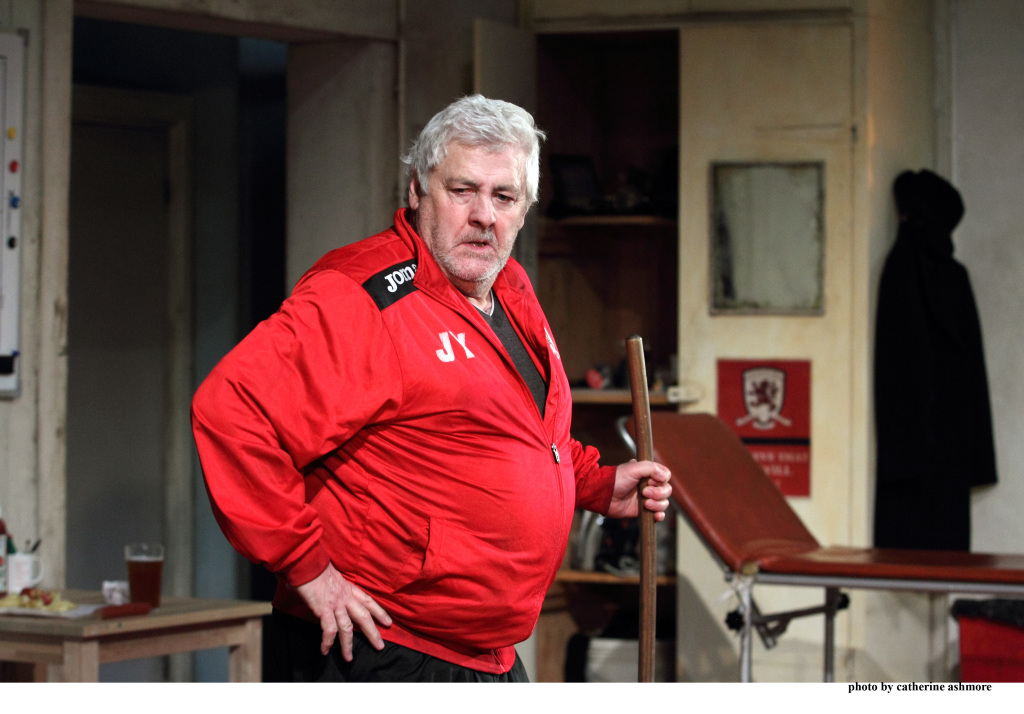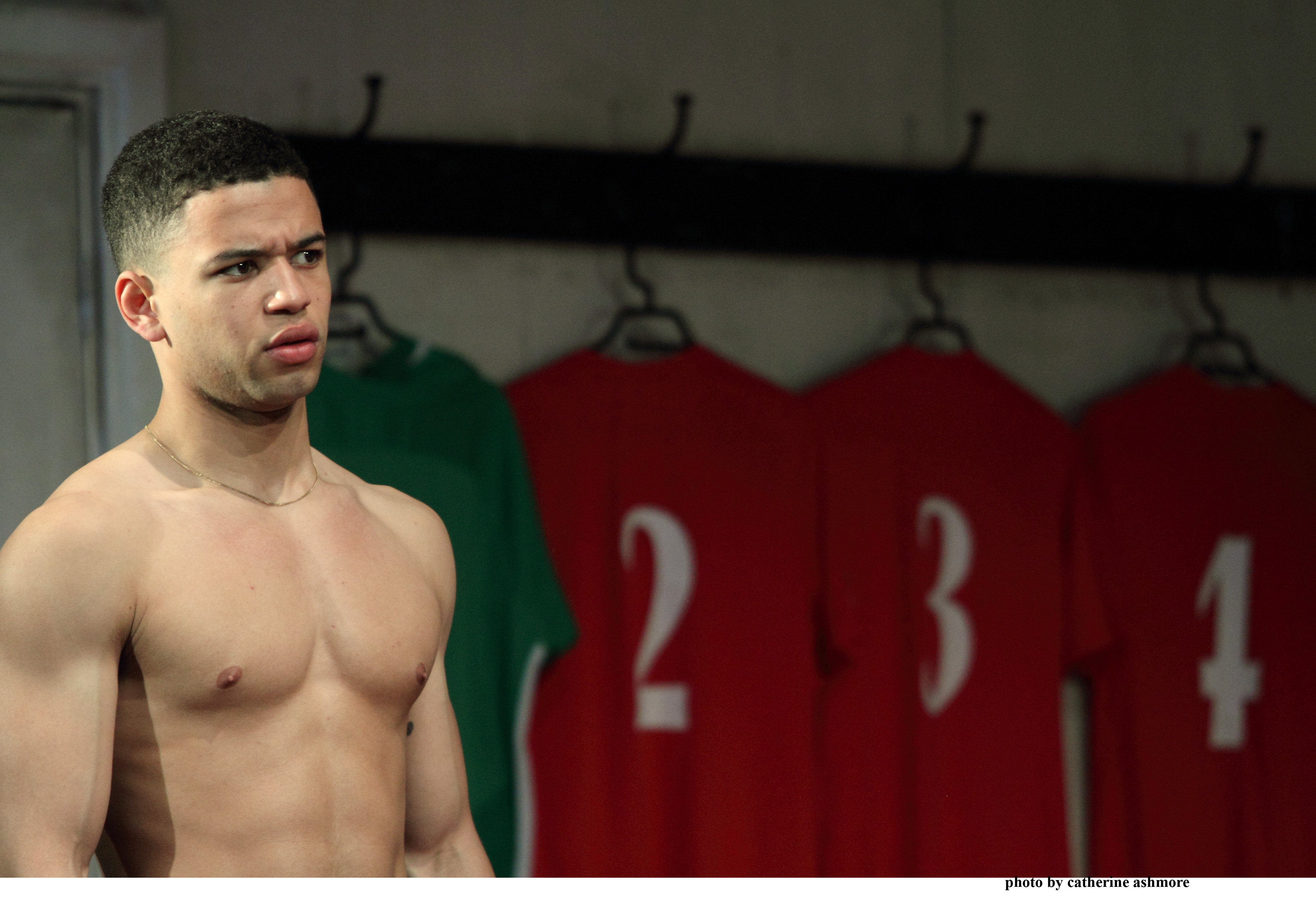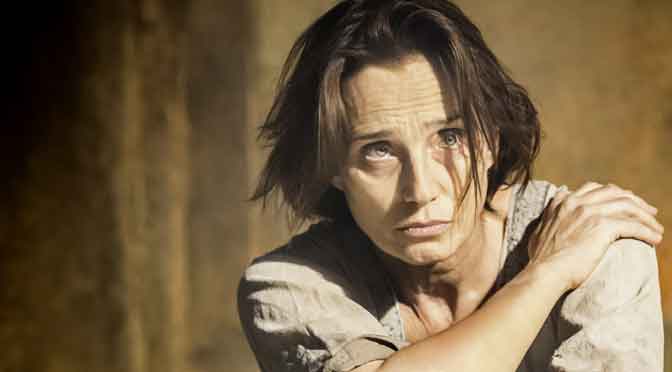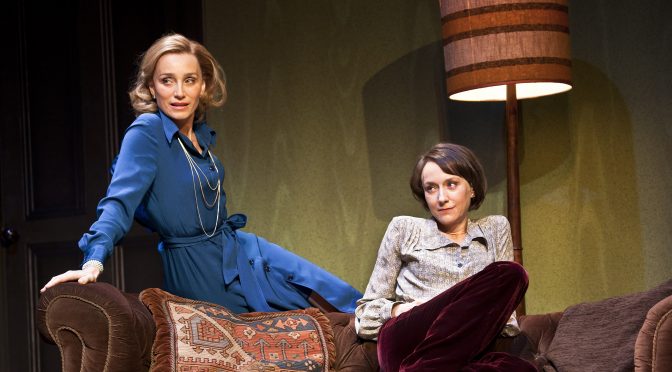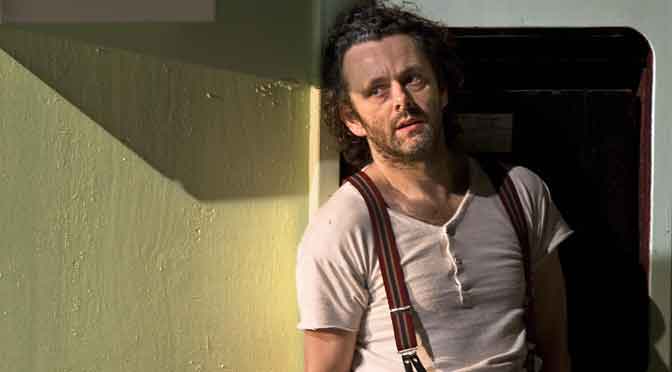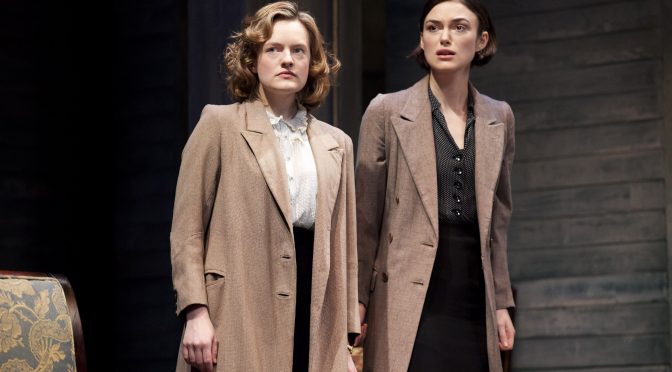It’d be lovely to roundly cheer producer Sonia Friedman’s idea of bringing new writing to the stage as the West End reopens. And bravo to director Ian Rickson and the performers of this first show of the ‘Re:Emerge Season’. Unfortunately, Amy Berryman’s debut play only musters polite applause.
Walden is the story of estranged scientist sisters Cassie and Stella, with Stella’s fiancé Bryan thrown in. Cassie’s just got back from the moon – the job Stella wanted – and is visiting the off-grid cabin her sister has retreated to. You can’t call Berryman’s writing bad – it’s studied, careful and competent – but it is predictable, and the story is thin.
One hour, 40 minutes is a long time to spend on sibling rivalry. With the legacy of their father’s space travel adding little, and a former love interest’s sketchy presence, the conflict between the sisters isn’t firmly grounded. It’s Gemma Arterton and Lydia Wilson’s performances as the sisters that hold the interest and bring conviction to the, admittedly detailed, roles. The only tension, as moments of passion and conflict fluctuate, comes with trying to work out which sister is really the coldest or most damaged… or which is the least likeable.
The near-future sci-fi elements of the play aren’t original (the same old climate catastrophe and mass migration) and nothing new is done with them. There’s a conspiracy theory (of course), this time a nasty Nasa. And a debate over moving to the moon feels tacked on – only phraseology is discussed – Cassie doesn’t like the word ‘Colony’.
It is with the character of Bryan – which Fehinti Balogun does a brilliant job with – that the play really shows its flaws. Too obviously introduced to create discussion – he is an ‘Earth Advocate’ opposed to science – it is solely Balogun’s skill that makes watching the character bearable. Only there to serve up questions to the other characters, which are subsequently ignored, Bryan’s own backstory is tacked on in almost insulting fashion. Frustratingly, Bryan should be essential – it is his “life in the woods” that the action is set in.
Apart from a cabin, there’s little of Henry David Thoreau in the play that takes the name of his famous retreat and book – surely a missed opportunity? There are plenty of influential ideas in Thoreau that could be explored, but any you might think connect with the play are only superficial. At best a brief discussion of Thoreau allows us to make up our mind about Cassie: describing him as a “whiney hipster” could confirm your opinion about her – I was ready to see her off the planet as soon as she said it!
It’s great to see performers on a stage again. And these are great performers, well directed. But it’s frustrating to see so little done with the stage. Waldenv could easily be a radio play. Indeed, a therapy session might be a more accurate description? More than once, characters ask one another “Tell me what you’re feeling”, before we settle down to a description. Too many scenes are duologues with forced debate.
An unresolved ending indicates how lost the script becomes. Despite the performances, it’s hard to care what happens to either sister. There’s a lot of talk of purpose in the play but too few interesting questions are raised or developed, leaving Walden itself with little point.
Until 12 June 2021

